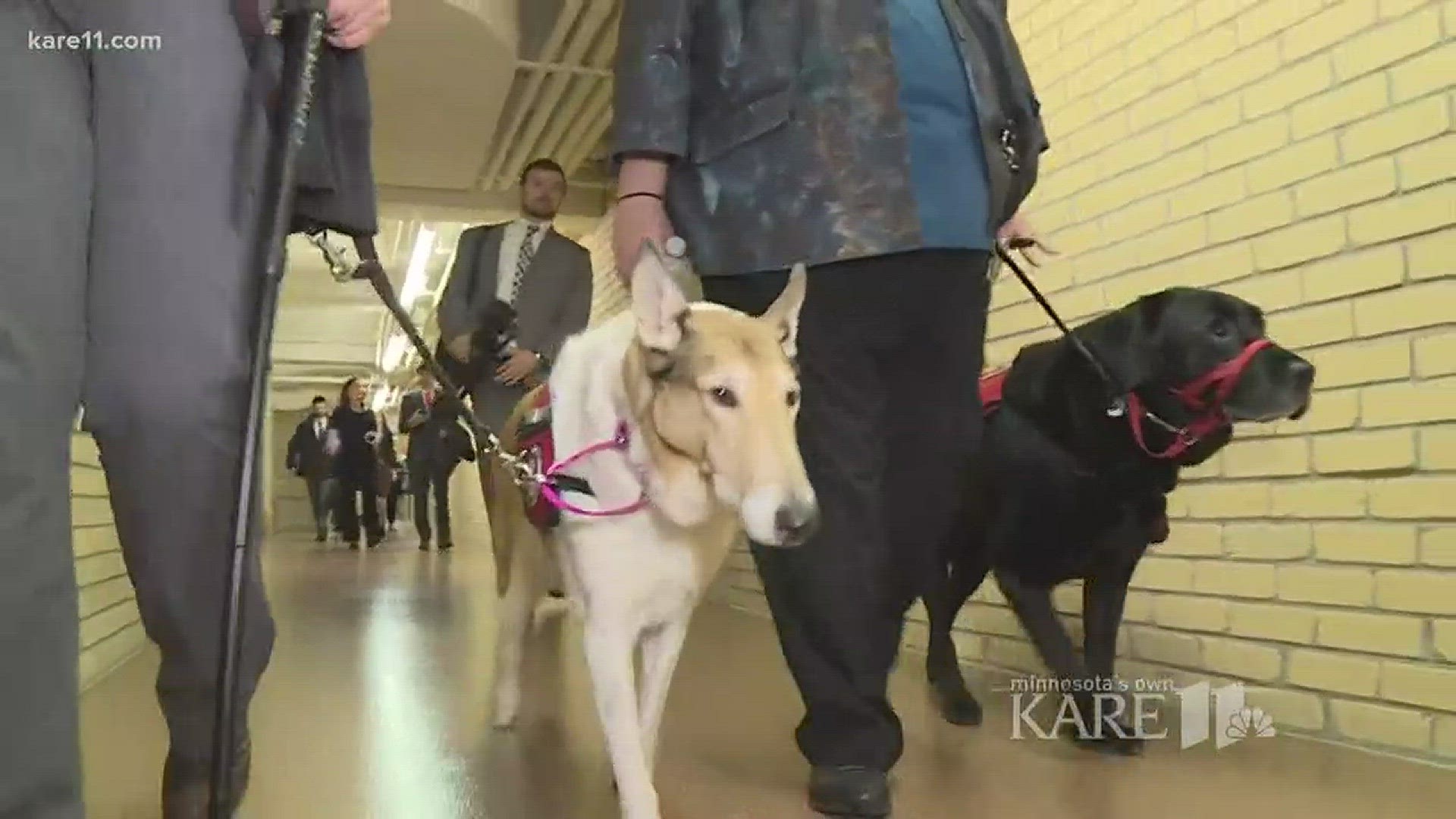ST. PAUL, Minn. -- State lawmakers are considering a bill that would make it a misdemeanor to pass off a regular pet as trained service animal, in order to bring them into businesses.
Those who rely on genuine service dogs say the imposters -- people who pretend they have a disability that requires a service animal -- are making it tougher to bring real service animals into businesses.
"I have trouble with business owners saying, well, 'You know, this is a restaurant and we really don’t want to have your dog, because we had this dog the other day eat out of a lady's plate' – our dogs do not do that," said Terri Krake, who came to the State Capitol with Brody, a seizure-assist service animal she's had for eight years.
"We run into these fake dogs, if not daily, three times a week. They’re lunging, they’re barking, they’re misbehaving. They can distract our dogs from doing their jobs."
She noted that regular pet dogs often don't behave the same in stores and restaurants as trained service animals do. But there's no state licensing system, that would allow employees to easily distinguish between fakers and the real McCoy.
And, because it's easy to buy generic service dog vests and harnesses online, store employees can easily assume the disruptive pets they see are actually service animals.
"They can’t tell the difference between a fake dog and well-trained assistance dog on first glance, so every time their dogs misbehave, it makes our dogs look bad," Alan Peters, executive director of Can Do Canines in New Hope, told reporters.
The most high-profile cases have involved pets brought onto airplanes, but air travel is regulated by federal laws. These bills would deal with situations in stores, theaters, restaurants and other businesses within the purview of state laws.
Beth Kantor, who came to the Capitol with her mobility-assist dog Dazzle, said she's had many encounters with dogs that were obviously untrained and unprepared to be in retail situations.
"I get it. People are dog lovers. They want to bring their dogs out," Kantor remarked.
"I love my dog too, but my dog is there because I medically need her."
The bills, authored by Rep. Steve Green of Fosston, Sen. Justin Eichorn of Grand Rapids, and Sen. Ann Rest of New Hope, would make it a petty misdemeanor to impersonate a person in need of a service animal. The second offense would be a misdemeanor.
The House Public Safety Committee voted to lay the bill over, and possibly revisit it later in the session. The Senate Public Safety Committee okayed the bill, and moved it to its next committee.
There was some pushback in the House from committee members who said the same goal could be accomplished within current laws against trespassing.They argued that people pretending to need a service dog could simply be warned to leave a business, and then charged with trespassing if they return with a pet.
But Sen. Eichorn asserted that approach would miss the mark, because people could be asked to leave multiple businesses on many occasions without ever being charged with a crime.
Kantor, who has Multiple sclerosis, says she's often asked why she has a dog with her because she can still walk, and doesn't always appear to be a person in need of a service dog.
But, under the Americans with Disabilities Act, or ADA, employees of businesses can't ask a person with a service dog what their medical condition or particular disability is. They can ask whether the dog is trained as a service animal, and what kinds of assistance the dog is trained to give.
Peters said there's also much confusion around emotional support animals, but those aren't technically service animals because they haven't been trained to assist with a particular medical condition or physical challenge.

